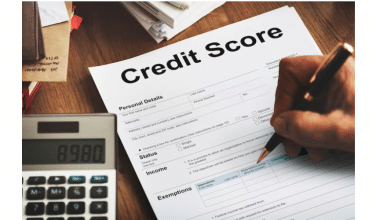Financial independence is a concept that many people strive for, but few achieve. It requires dedication, commitment, and an understanding of how to handle money correctly. Below is a WB trading review of some steps that will help you take control of your finances and eventually lead you to financial freedom so you can live your life to its full potential.
#1. Set Goals
Setting goals is the first step in achieving financial independence. It’s essential to ensure these goals are realistic and achievable and have a timeline associated with them. This will help keep you motivated and provide a sense of accomplishment once they’re achieved. Setting clear goals will also give you direction, making you less prone to mistakes.
#2. Create a Budget
Creating a budget and sticking to it are essential to achieving financial independence. Track your spending, set limits on specific categories, and create short-term and long-term savings goals. This will help you stay on track with your goals and prevent overspending.
#3. Avoid Debt
Paying off debt can be one of the biggest obstacles to financial independence. Try to avoid taking out any more loans or credit cards if possible, as these can add up quickly and make it difficult to pay off what you owe. Consider different debt consolidation options or speak with a financial advisor about developing a repayment plan if necessary.
#4. Invest Wisely
Investing in stocks, bonds, mutual funds, real estate, or other investments can be incredibly beneficial when trying to become financially independent. Research each investment thoroughly before committing any money so that you know what kind of return you’re expecting from your investment portfolio over time.
#5. Automate Savings
Automating your savings is an easy way to ensure you save money each month. With automated savings, you won’t have to remember or think about your savings every time you get paid or receive income from another source, such as a side hustle or freelance gig.
There are a few different ways to automate your savings. One option is to set up a recurring transfer from your checking account to your savings account. This will ensure the money is transferred each month without you having to do anything.
Another option is to use a budgeting app that automatically saves a certain percentage of your monthly income. This can be a great way to ensure you’re always saving money, even if you don’t have time to do it manually.
#6. Reduce Expenses
Take the time to review your monthly expenses and see where there may be room for cutting back to save some extra cash each month, which will help you achieve financial independence faster. This may include canceling subscriptions you no longer use, eating out less often, or downsizing your living situation. Try to be creative and find ways to save money without making too many sacrifices.
#7. Earn Extra Income
When it comes to achieving financial independence, earning extra income can significantly help. There are many different ways to do this, such as freelancing, starting a side hustle, or starting an online business. These all have the potential to bring in some extra cash each month which can be put towards savings or debt repayment.
Another way to make extra money is by starting an online business. This can be anything from selling products on eBay or Amazon or providing services such as freelance writing. With an online business, you can work from home and set hours. So if you’re looking for extra income, these are great options.
#8. Monitor Progress
Monitoring your progress is key to achieving any goal, especially financial independence. By keeping track of your spending, budget, investments, and other financial metrics, you can ensure that you’re on the right track and make necessary adjustments along the way.
#9. Create an Emergency Fund
Creating an emergency fund is one of the best ways to protect yourself from unexpected expenses, such as medical bills or car repairs, that can derail even the most organized budgets.
An emergency fund should include enough money saved up to cover at least three months of living expenses in case of job loss or other unforeseen circumstances. It’s important not to dip into this fund unless necessary, so it’s always available when needed.
#10. Stay Organized
Staying organized is essential when working towards financial independence since it helps ensure nothing falls through the cracks during this process which could lead to setbacks or missed opportunities. Develop a system for tracking your income sources, expenses, investments, and debts owed. This ensures everything remains easily visible and nothing gets overlooked during this journey!
Final Thoughts
Achieving financial independence can seem daunting, but following this WB trading review of steps to financial independence, you can progress toward success. These simple tips today can help ensure that you’re well on your way toward achieving true financial freedom tomorrow!






